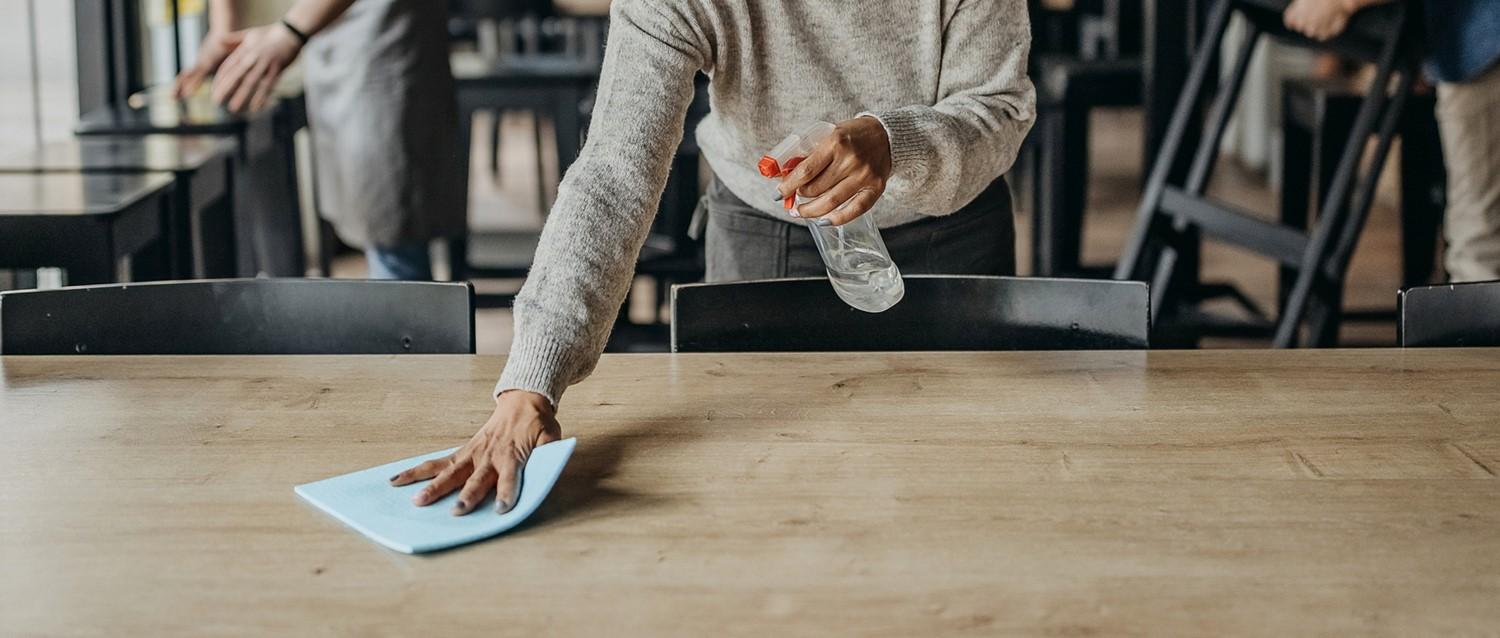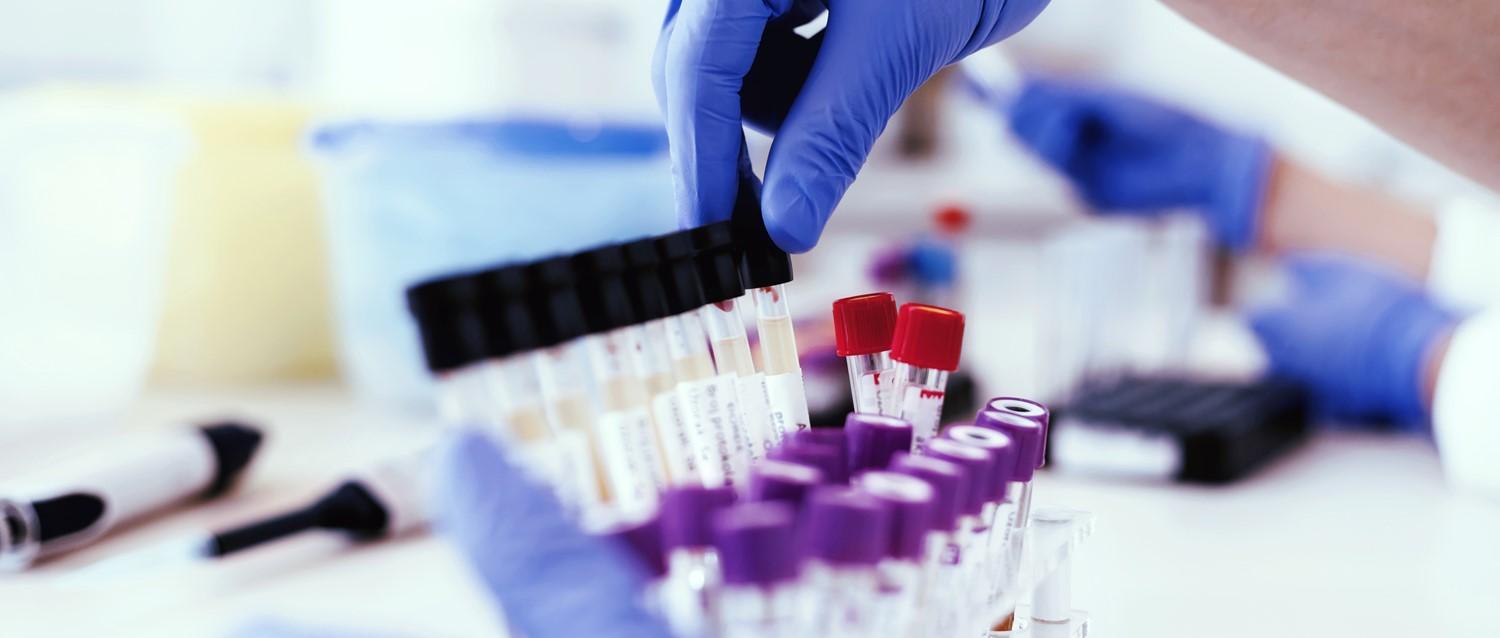
COVID-19: how to avoid catching viruses at work
Peer reviewed by Dr Sarah Jarvis MBE, FRCGPLast updated by Andrea DowneyLast updated 14 Sept 2021
- DownloadDownload
- Share
As the final COVID-19 restrictions have been lifted in England more people are being encouraged to go back to work. But as more people begin to travel to work and mix in public areas, so the risk of catching viruses increases, whether it's colds, stomach bugs or coronavirus.
In this article:
And after more than a year of working from home, our bodies' immune systems are a bit more susceptible to illness than they might usually be.
So, how can you protect yourself from viruses when you return to work? BBC Breakfast's Dr Rachel Ward tells us more.
Continue reading below
Bugbear
If there's one thing COVID has taught us, it's the importance of washing our hands and keeping our workspace well sanitised.
It's a practice that should be continued even after restrictions have been lifted, Dr Ward says.
"As a population we are now far more aware of ways to stop virus transmission and protect ourselves from picking up bugs. As we move back into the workplace, ongoing vigilant hand hygiene and social distancing, where possible, will protect us from many common bugs."
This is a particular issue given how many offices have been adapted to shared working as more people combine home with office work.
"Additional hygiene steps include regular cleaning of workspaces with antimicrobial products, especially if 'hot-desking', and ensuring drinking glasses, cups and utensils are thoroughly cleaned, if shared by colleagues."
You should also stay home if you feel unwell, even if you're certain it's not COVID. And, of course, if you have any symptoms of coronavirus including a persistent cough, fatigue, and temperature, you should isolate immediately and order a PCR test from Test and Trace.
"Previously, many employees would feel a pressure to continue to go to work, despite having a cough or cold. I believe it is important that we develop a different attitude to illness in the workplace," Dr Ward adds.
"We now know that many people can continue to function well, working at home. Therefore, it is important that people do not enter the workplace when ill and risk infecting their colleagues.
"If you are in the workplace with a cold or cough, ensure that you socially distance, cough or sneeze into disposable tissues and wash your hands regularly."
Cold facts
Dr Ward adds that while we're still mostly concerned with stopping the spread of coronavirus, there are other bugs and viruses that are likely to be spread as we return to work.
"As more people return to the workplace, we are, of course, thinking about how we protect ourselves from contracting COVID-19. But after a winter dominated by lockdown and social distancing, there are concerns that we will see a surge in respiratory illnesses, such as colds and flu, as restrictions are relaxed and people are mixing again," she says.
"The viruses which cause common colds and respiratory infections are spread by air transmission of fine particles that we breathe out but also many viruses can survive on surfaces for up to 24 hours.
"If you touch a contaminated surface, you can then infect yourself by touching your face and eyes."
Once again, that hammers home the important message of frequently washing your hands and avoiding touching your face where possible.
Patient picks for COVID-19

Chest and lungs
COVID-19: can I get tested for coronavirus?
Right from the beginning of the coronavirus outbreak, testing has been front and centre of many countries' responses to the pandemic. As cases of COVID-19 increase, the UK government plans to offer new tests to patients and healthcare workers across the country.
by Milly Evans

Chest and lungs
COVID-19
COVID-19 is an infectious disease caused by a virus that was first identified in December 2019 in Wuhan, China. This leaflet deals with the symptoms, causes and treatment of COVID-19.
by Dr Doug McKechnie, MRCGP
Continue reading below
Location, location, location
Of course, not all of us work in the same type of workplace. There are those who work in offices, those who work outside and others whose job requires them to enter other people's homes.
Plus, there's the commute to and from work to think about as well.
"The best way to minimise your infection risk is to travel in your own vehicle or to walk or cycle to work. This is not possible for everyone, in which case there are precautionary measures you can continue to take on public transport," Dr Ward says.
"Though face masks are no longer a legal requirement on public transport, certain areas are mandating that passengers continue to wear them, such as in London. Even outside these areas, wearing a face mask offers you some protection, though it is much greater if those around you are also wearing them."
Dr Ward also suggests maintaining social distancing and travelling outside rush hour where possible.
Office
Most office spaces will still have some rules in place to prevent the spread of COVID and other viruses.
You should also keep up with your regular handwashing or use of antiviral hand santiser to protect yourself from bugs.
"If there are no specific rules in your workplace, continue to be vigilant with the hygiene steps discussed above and try to maintain social distancing where possible," Dr Ward explains.
"If social distancing is not possible then ensure that the workspace is well ventilated. Discuss any concerns with your employer and request that safety measures are encouraged among employees."
Outside
"Working outside is inherently much lower-risk with regard to transmission or airborne viruses, though it is not without risk and if someone has an illness they should still avoid being in the workplace," Dr Ward explains.
And if you take your break inside with workmates then it's still important to socially distance and follow the usual hygiene steps.
Working in others' homes
For some people, going back to work means going into multiple people's homes, which means they also rely on the person they are visiting to be virus savvy and hygienic.
"Working in people's homes can be challenging as you are more reliant on that person to follow hygiene measures. Hand hygiene and social distancing remain important, and you may to choose to wear a face mask," Dr Ward says.
"If someone in the home that you are visiting has an illness, you should postpone the visit wherever possible. Those in caring or other roles which involve continuing to visit others homes should wear personal protective equipment as per the guidance for their role.”
Test and isolate
While the steps to avoid all types of viruses are essentially the same, we do know that COVID-19 spreads faster and can have a more devastating impact. The Delta variant, which is now by far the most common variant in the UK, is much more infectious than the original variant.
This is why it is a requirement to self-isolate and get a PCR test if you get any COVID-19 symptoms.
"The other main way we can protect ourselves from COVID-19 is by vaccination. By getting the COVID-19 vaccine, we are protecting ourselves from becoming seriously unwell with COVID but also we are reducing the risk of transmitting it to others and protecting those that we have contact with."
The requirement for self-isolation following close contact with someone with proven COVID-19 has now been lifted for all people under 18 years and 6 months old and anyone who has received two COVID-19 vaccinations at least two weeks ago. However, everyone in these categories is actively encouraged to get a PCR test if they are contacted to check if they have been infected.
Unfortunately, while double vaccination provides excellent (up to 96%) protection against severe disease, it does not provide the same level of protection against infection - and if you're infected you can still transmit the virus, even if you don't feel unwell. So if you have been identified as a contact, it's important to minimise contact with anyone who's clinically vulnerable.
Continue reading below
What can your employer reasonably ask?
There are undoubtedly many who are anxious about a return to work and crowded public places, so what can your employer reasonably ask you to do?
"I think the main request that employers can ask is for their employees to be considerate of those around them," Dr Ward says.
"For clinically vulnerable people, returning to the workplace is a very stressful time. People should be considerate of others and take measures to minimise the spread of all respiratory illness in the workplace as we enter periods with high circulating cases of COVID-19 and other respiratory illnesses."
There is also guidance on the gov.co.uk website on "working safely during COVID" which covers guidance for all workplace environments.
Article history
The information on this page is peer reviewed by qualified clinicians.
14 Sept 2021 | Latest version

Ask, share, connect.
Browse discussions, ask questions, and share experiences across hundreds of health topics.

Feeling unwell?
Assess your symptoms online for free